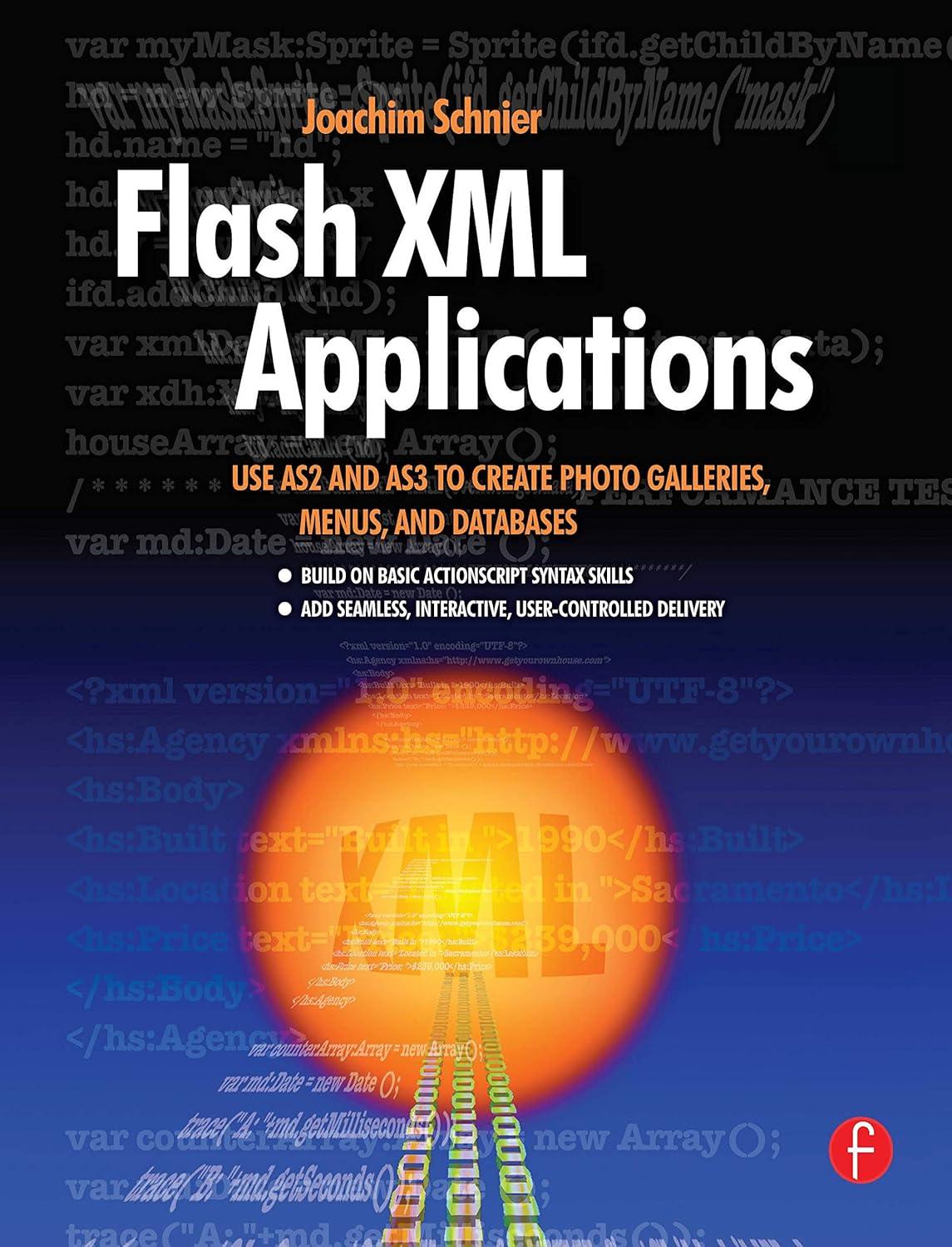Question
Please help complete. Use Genetic Algorithms to solve a Class Scheduling Problem. create a correct fitness function (see the code) generate a reasonable schedule, based
Please help complete.
Use Genetic Algorithms to solve a Class Scheduling Problem.
create a correct fitness function (see the code) generate a reasonable schedule, based on the fitness functiondisplay accurate and reasonable select / cross-over / mutate steps. This only needs to be done a few times.
------------------------------------------------------------------------------------------------------------------------------------------------
'''Sample random Scheduling problem.'''
import copy import random
########################################################################## # This section contains the base classes ##########################################################################
# Scramble up some random specs NumberClasses = random.randint(40, 80) NumberProfessors = random.randint(30, 50) NumberRooms = random.randint(15, 20) NumberStudents = random.randint(300, 600) NumberTimeSlots = random.randint(9, 12)
# Print out configuration randomly-generated "constants" print("Classes = %d" % NumberClasses) print("Professors = %d" % NumberProfessors) print("Rooms = %d" % NumberRooms) print("Students = %d" % NumberStudents) print("TimeSlots = %d" % NumberTimeSlots) print()
# One instance per soom class Room: def __init__(self, n): self.name = "B-%3.3d" % (100+n) self.size = 10 * random.randint(4, 10) # One instance per class, which has 1 room, 1 timeSlot, 1 professor and many students class Class: def __init__(self, n): self.name = "CS %3.3d" % (100+n) self.professor = None self.students = [] def setProfessor(self, prof): if self.professor != None: self.professor.classes.remove(self) self.professor = prof self.professor.classes.append(self) def setRoom(self, room): self.room = room def setTimeSlot(self, timeSlot): self.timeSlot = timeSlot # One instance per professor who can teach many classes class Professor: def __init__(self, n): self.name = "Dr. X%2.2d" % (n+1) self.classes = [] # One instance per student class Student: def __init__(self, n): self.name = "student %3.3d" % n self.classes = [] def addClass(self, cls): if not (cls in self.classes): self.classes.append(cls) cls.students.append(self) # Define all the object classes class TimeSlot: def __init__(self, n): self.name = "time slot %2.2d" % n self.hour = "%2d:00" % (n+8)
# These must be the same for all schedules Rooms = [Room(x) for x in range(0, NumberRooms)] Professors = [Professor(x) for x in range(0, NumberProfessors)] Students = [Student(x) for x in range(0, NumberStudents)] TimeSlots = [TimeSlot(x) for x in range(0, NumberTimeSlots)] BaseClasses = [Class(x) for x in range(0, NumberClasses)]
# Randomly assign students to classes. These do NOT change with each schedule. for student in Students: for x in range(0, random.randint(3, 4)): cls = random.randint(0, NumberClasses-1) student.addClass(BaseClasses[cls])
# Generate some random data, giving each class a professor, a room and a time slot class Schedule: def __init__(self): self.Classes = copy.deepcopy(BaseClasses) # Randomly assign professors, rooms and time slots to classes for cls in self.Classes: prof = random.randint(0, NumberProfessors-1) cls.setProfessor(Professors[prof]) room = random.randint(0, NumberRooms-1) cls.setRoom(Rooms[room]) timeSlot = random.randint(0, NumberTimeSlots-1) cls.setTimeSlot(TimeSlots[timeSlot]) ########################################################################## # This section is just for printing ##########################################################################
# Print the current schedule, by time slot def printTimeSlots(schedule): print("%-5s %5s %-10s %-10s %-10s %8s %s" % ( "Room", "Size", "Time", "Class", "Professor", "Students", "Error(s)")) for room in Rooms: for timeSlot in TimeSlots: dup = False for cls in schedule.Classes: if cls.room == room and cls.timeSlot == timeSlot: msg = "" if len(cls.students) > room.size: msg += " *Overflow*" if dup: msg += " *Duplicate*" print("%-5s %5d %-10s %-10s %-10s %8d %s" % ( room.name, room.size, timeSlot.hour, cls.name, cls.professor.name, len(cls.students), msg)) dup = True # Show schedule for each professor def printProfessors(schedule): line = "%-10s" % "Professor" for timeSlot in TimeSlots: line += "%8s" % timeSlot.hour print(line)
for prof in Professors: line = "%-10s" % prof.name for timeSlot in TimeSlots: room = None for cls in prof.classes: if cls.timeSlot == timeSlot: if room == None: room = cls.room.name else: room = "*ERR*" if room == None: line += "%8s" % "- " else: line += "%8s" % room print(line)
########################################################################## # This is the important section. It creates and prints a random schedule # Your work starts here. For each class, you can ONLY change three values: # professor, time slot and room. Everything else stays constant. # # Step 1: Select based on Fitness function # Based on NumberSchedules, select that many new pairs of schedules and rank # them. Fewer *Duplicate* *Overflow* and *ERR* is better. Look very carefully # at the Schedule() constructor (__init__). # # Step 2: Cross-over # Generate new Schedules by taking some # of classes from each "parent" # # Step 3: Mutate # Randomly change a professor, a room or a time slot on each new schedule. # ##########################################################################
# For you to compute. Look at printTimeSlots() and printProfessors(). def fitness(schedule): return 0.0 NumberSchedules = 10 schedules = [Schedule() for x in range(0, NumberSchedules)] for schedule in schedules: print("=========================================================================") printTimeSlots(schedule) print() printProfessors(schedule) print() print("Fitness = %.5f" % fitness(schedule)) print()
Step by Step Solution
There are 3 Steps involved in it
Step: 1

Get Instant Access to Expert-Tailored Solutions
See step-by-step solutions with expert insights and AI powered tools for academic success
Step: 2

Step: 3

Ace Your Homework with AI
Get the answers you need in no time with our AI-driven, step-by-step assistance
Get Started


